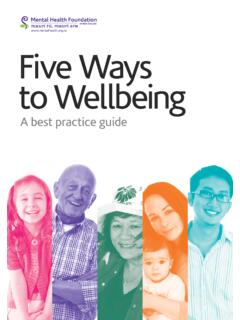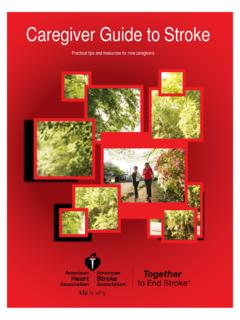Transcription of EXPLAINING SUICIDE TO CHILDREN AND YOUNG …
1 A skylight information sheet EXPLAINING SUICIDE TO CHILDREN AND YOUNG PEOPLE Breaking any kind of bad news to CHILDREN and teens is difficult, but something as painful as SUICIDE makes it even harder. See skylight s Information Sheet BREAKING BAD NEWS TO CHILDREN AND TEENS for helpful ideas around this online at or call 0800 299 100. The following ideas and suggestions relate specifically to SUICIDE . To support your bereaved child or teen, skylight recommends you also read the other skylight information articles available, and check out related resources skylight makes available.
2 We hope our kids never have to experience tragic events, but if a tragedy does occur, they ll come through the experience in a healthier way if they ve been given the truth, and included in the family grief process - including the funeral, tangi and/or memorial services. Adults often want to shield and protect YOUNG people from hearing a difficult truth, but lying to protect them by avoidance or half-truth most often has damaging consequences. CHILDREN and teens will learn the truth from someone else one day probably a warped or unhelpful version of it and trust in you can be broken, along with your future credibility.
3 Worse, they may feel they have to now honour the lie themselves, bottling up any questions, thoughts or feelings they have about the SUICIDE , preventing them from dealing with its reality in a healthy way. Unacknowledged and unresolved grief often has long-term negative effects on a person s life, outlook and relationships. When I didn t get answers to my questions I came up with my own, which were wrong and also scary. And I got told things by other kids too, which were half-truths.
4 I ended up a mess inside for a long time, afraid of lots of things and not able to trust my father. I wasn t told the straight truth for ten years. Telling me properly at the time would have saved me years of confusion and fear. The age and stage of a child or teen, their personality and how close they ve been to the person who has died are the kinds of key considerations to take into account when you speak with them. KEY THINGS TO KEEP IN MIND Tell all your CHILDREN even younger ones.
5 Keep it short and simple Don t over-explain. Keep it truthful and consistent It might be hard to say, but say it. Give correct information in a loving, direct and compassionate way. Use common sense Avoid unnecessary details. Use words and phrases they know. Don t use terms like asleep, passed on, passed over and gone on a journey to describe death. CHILDREN can take such words literally and get confused about what s actually happened. Be aware of the shock factor.
6 Repeat key information later. Check on understanding. Realise early reactions, though often difficult to witness, allow a child or teen to begin to process what s happened. They may range from acute distress to complete numbness, withdrawal or even seeming disinterest. Be understanding. Many CHILDREN and teens in fact experience delayed reactions that can often be triggered by the simplest things. Try not to over-react to their reactions. Encourage them to talk about it and ask questions whenever they need to.
7 And if they do pay attention well. Expect them to process what s happened over a very long period. As they grow and mature they are likely to understand what s happened in new ways. They may want to ask questions days, weeks and even years later. Reassure. Reassure. Reassure. When I look back at my childhood, it wasn t so much what was said to me that I remember. It s how I was made to feel during that time of such sadness. SOME SUGGESTED ANSWERS WHEN CHILDREN IS SUICIDE ? SUICIDE is when a person is so very ill and so deeply sad that she chooses to make her body stop working.
8 He had a very serious sickness in his brain that made him very confused and sad so that he didn t want to live any more. People die in lots of ways. They might get sick or have a bad accident, or they might die because they re old and their body stops working. SUICIDE means that someone got so sick that they made their own body stop working on purpose. Brains can get sick, just like other important parts of our body do, like our heart or lungs or liver. Her brain got very sick with an illness called depression.
9 This illness got so bad it muddled up the way she thought and felt, and caused her to do something that would make her body die. (Although most people with depression do get better.) When someone gets sick with an illness called depression it can cause their brains to get so mixed up and confused that they feel very bad inside. They can t even think clearly. Some people get so sick that they can t think how to stop the terrible hurt and pain inside. They can get so ill they don t even realise they can get help to feel better again.
10 To make their pain stop they make themselves die on purpose. That s what SUICIDE is. When someone dies by SUICIDE they choose to end their life because in their mind living is too hard for them. They don t know how to get help or don t choose to get help. It isn t a wise choice because they can get help so they don t have to keep on feeling such hurt and pain all the time. The only person who really knew why this happened is XX. There are lots of things we don t know. But we do know that XX loved us, and we loved XX.







